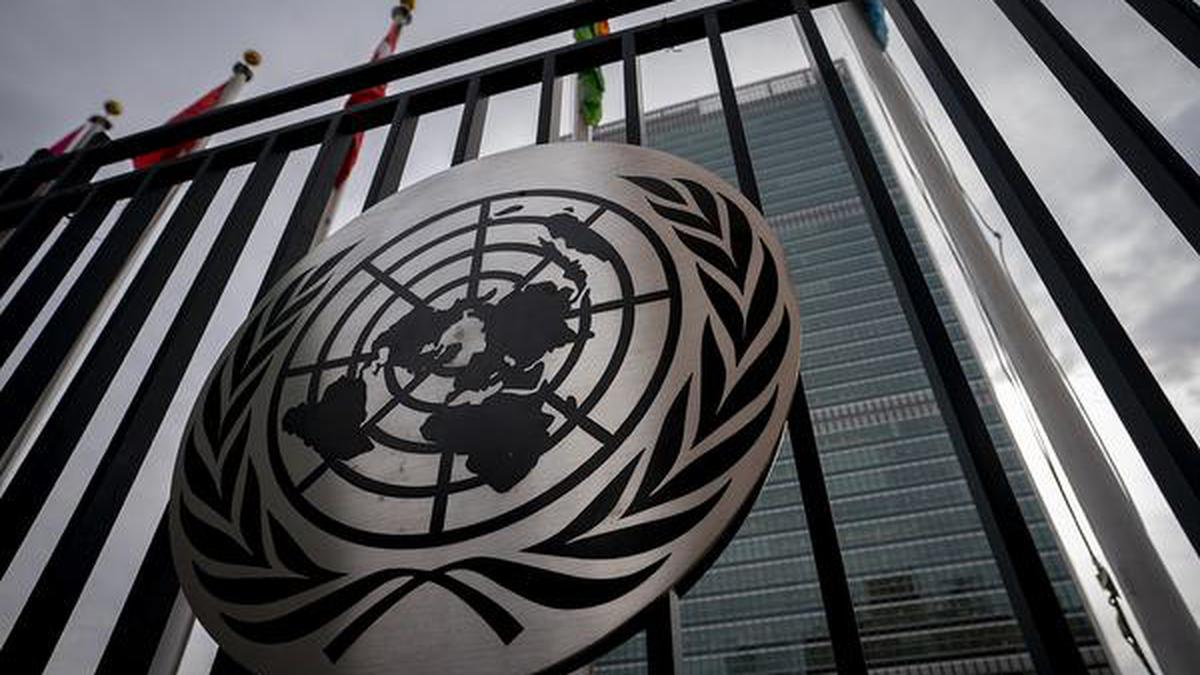
Shaping the longer term:Unlike Security Council resolutions, General Assembly resolutions should not legally binding however they’re an essential barometer of world opinion.
| Photo Credit: AP
The United States is spearheading the primary United Nations decision on synthetic intelligence, aimed toward guaranteeing that the brand new know-how is “safe, secure and trustworthy” and that each one international locations, particularly these within the creating world, have equal entry.
The draft General Assembly decision goals at closing the digital divide between international locations and ensuring they’re all on the desk in discussions on AI — and that they’ve the know-how and capabilities to make the most of its advantages, together with detecting ailments, predicting floods and coaching the subsequent era of employees.
The draft recognises the speedy acceleration of AI growth and use, and stresses “the urgency of achieving global consensus on safe, secure and trustworthy artificial intelligence systems.” It additionally recognises that “the governance of artificial intelligence systems is an evolving area” that wants additional discussions on attainable governance approaches.
U.S. National Security Advisor Jake Sullivan stated the United States turned to the General Assembly “to have a truly global conversation on how to manage the implications of the fast-advancing technology of AI.”
‘Global support’
The decision “would represent global support for a baseline set of principles for the development and use of AI and would lay out a path to leverage AI systems for good while managing the risks,” he stated in a press release. If authorised, Mr. Sullivan stated, “this resolution will be a historic step forward in fostering safe, secure and trustworthy AI worldwide.”
The U.S. started negotiating with the 193 UN member nations about three months in the past, spent a whole lot of hours in direct talks with particular person international locations, 42 hours in negotiations and accepted enter from 120 nations, a senior U.S. official stated. The decision went by a number of drafts and achieved consensus assist from all member states this week and can be formally thought-about later this month, the official stated, talking on situation of anonymity as a result of he was not authorised to talk publicly.
Unlike Security Council resolutions, General Assembly resolutions should not legally binding however they’re an essential barometer of world opinion.
A key purpose, in response to the draft decision, is to make use of AI to assist spur progress towards attaining the UN’s badly lagging growth targets for 2030, together with ending world starvation and poverty, enhancing well being worldwide, guaranteeing high quality secondary schooling for all youngsters and attaining gender equality.
‘Develop frameworks’
The draft decision encourages all international locations, regional and worldwide organisations, technical communities, civil society, the media, academia, analysis establishments and people “to develop and support regulatory and governance approaches and frameworks” for protected AI techniques. It warns in opposition to “improper or malicious design, development, deployment and use of artificial intelligence systems, such as without adequate safeguards or in a manner inconsistent with international law.”
Lawmakers within the European Union are set to present ultimate approval to the world’s first complete AI guidelines on Wednesday. Countries all over the world, together with the U.S. and China, or world groupings just like the Group of 20 industrialised nations are also transferring to attract up AI laws.
The U.S. draft calls on the 193 UN member states and others to help creating international locations to entry the advantages of digital transformation and protected AI techniques. It “emphasises that human rights and fundamental freedoms must be respected, protected and promoted throughout the life cycle of artificial intelligence systems.”
U.S. Ambassador Linda Thomas-Greenfield recalled President Joe Biden’s handle to the General Assembly final yr the place he stated rising applied sciences, together with AI, maintain huge potential.
She stated the decision, which is co-sponsored by dozens of nations, “aims to build international consensus on a shared approach to the design, development, deployment and use of AI systems,” significantly to assist the 2030 UN targets.
The decision responds to “the profound implications of this technology,” Thomas-Greenfield stated, and if adopted it is going to be “an historic step forward in fostering safe, security and trustworthy AI worldwide.”
Source: www.thehindu.com




